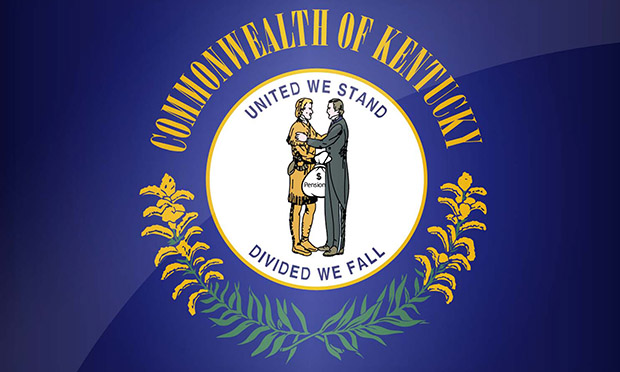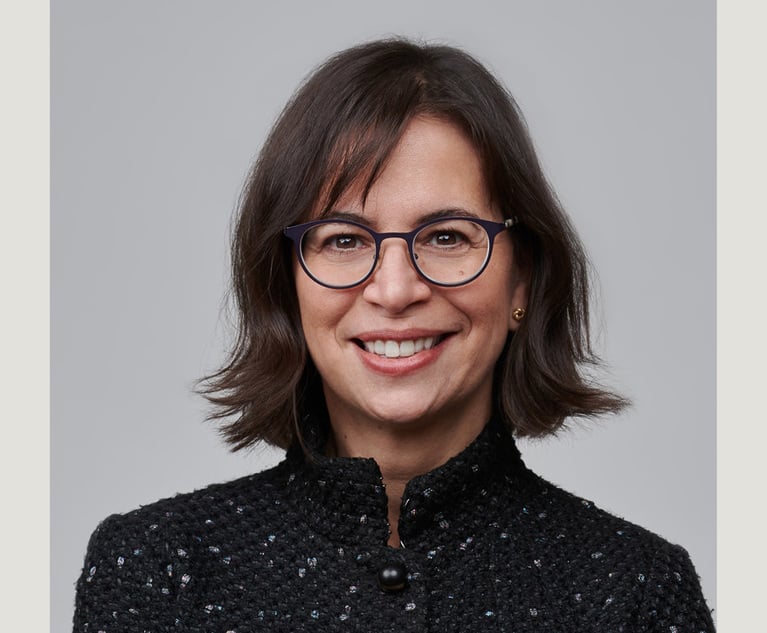Simpson Thacher and Paul Weiss Bring Home Big Win from the Bluegrass for Pension Managers
Hedge fund managers slept a little bit easier last Thursday night.
July 13, 2020 at 09:39 PM
6 minute read
 Illustration: Jason Doiy/ALM
Illustration: Jason Doiy/ALM
Hedge fund managers slept a little bit easier last Thursday night.
On July 9, the Kentucky Supreme Court handed down a long-awaited decision shutting down an attempt by a group of state pension holders to bring claims of breach of fiduciary against three hedge funds they accused of sticking the state retirement system with overly risky investments and cranking up unnecessary fees.
Eight plaintiffs who hold defined benefits pensions in the Kentucky Retirement Systems, or KRS, the body that manages public employee pensions in the state, brought a derivative lawsuit in 2018 against KRS's trustees and officers, and three so-called "funds of funds": PAAMCO, Prisma, and a fund manager affiliated with The Blackstone Group.
The lawsuit, spearheaded by Ann Oldfather of Oldfather Law Firm in Louisville and Michelle Ciccarelli Lerach of Bottini & Bottini, claimed that the funds lured in $1.5 billion in retiree funds into "black box" investments without fully disclosing the risks and high fees that would be wracked up by the perennially underfunded state pension. The suit, which also named Prisma's parent, KKR & Co., and its top executives Henry Kravis and George Roberts, as well as Blackstone's CEO Stephen Schwarzman, was seen by many in the industry as a trial balloon that, if successful, could be replicated in other states where hedge funds have been brought in to help ramp up returns for the chronically underfunded public-employee retirement pools.
And in case Lerach's name didn't jump out at you in the paragraph above, Oldfather made it clear that Lerach's husband, Bill was acting on the case as a consultant. Oldfather told a team from PBS's Frontline reporting on Kentucky's pension problems that the plaintiff's team was "blessed" to have Bill Lerach acting as a consultant for the plaintiffs on the inner workings of pension funds. Bill, who led the team that scored a record $7 billion settlement in securities litigation involving Enron Corp., spent nearly two years in prison after pleading guilty to paying kickbacks to plaintiffs in securities fraud cases and can no longer practice law.
Faced with a possible new plaintiff's business-model-in-the-making, the big-name defendants brought on big-name defense lawyers. A team from Simpson Thacher & Bartlett including partners Paul Curnin, Michael Garvey and Peter Kazanoff, senior counsel David Elbaum, counsel Sara Ricciardi and associates Shannon McGovern and Michael Carnevale stepped up for PAAMCO and Prisma. Meanwhile, Blackstone leaned on a Paul, Weiss, Rifkind, Wharton & Garrison team led by firm chairman Brad Karp which included litigation partners Andrew Ehrlich, Lorin Reisner and Brette Tannenbaum.
This is the part of the column where I should disclose that, as a native Kentuckian who spent the first half of my life in the Bluegrass, I have more than a passing interest in the goings-on in the Commonwealth. That said, I wasn't aware of the derivative lawsuit until the opinion dropped last week, even though my father is a current state employee set to receive a defined-benefit pension.
The good news for dad AND the defendants is that the Kentucky Supreme Court found the plaintiffs didn't have standing to sue since they hadn't experienced any disruption in their benefits. In fact, the court held that there is plenty of law on the Kentucky books that says that if KRS faces a shortfall in the future, the state is on the hook for it.
"In essence, then, the full faith and credit of the Commonwealth serves as a backstop for plaintiffs' pension benefits even in the event that severe plan mismanagement renders KRS insolvent," Kentucky Chief Justice John D. Minton Jr. wrote. Minton concluded that "as a matter of law, these eight Plaintiffs, as beneficiaries of a defined-benefit plan who have received all of their vested benefits so far and are legally entitled to receive their benefits for the rest of their lives, do not have a concrete stake in this case." Without a concrete stake, Minton wrote, the plaintiffs lack constitutional standing to bring their claims in Kentucky courts which, unlike some states, have the same justiciability requirements as federal courts.
Thursday's ruling comes almost a year after Kentucky's high court heard oral argument from Simpson Thacher's Curnin in the case and a little more than 14 months after defendants successfully got the brakes put on the suit by winning a seldom-granted writ of prohibition on the jurisdictional issue at the Kentucky Court of Appeals.
Karp of Paul Weiss said that his client never should have been sued in the first place since its work resulted in 6.5% annual return during the life of the investment and its fund nearly tripled benchmarks set out in its investment agreement with KRS.
"In the end, the Kentucky Supreme Court saw plaintiffs' gambit for what it was: an effort by contingency-fee counsel to step into KRS's shoes with absolutely no legal authority to do so," Karp said via email Monday. "This case involved an effort by some aggressive and clever plaintiffs' lawyers to assert claims that properly belonged to KRS, but which KRS itself never asserted because they were transparently meritless, and to assign blame for KRS's massive funding deficit on some deep-pocketed parties that concededly did not create the deficit, which long pre-dated their arrival and which they helped to mitigate. Suffice it to say that no court in Kentucky or in any other jurisdiction has ever sustained claims and theories like those asserted here by plaintiffs."
Neither Oldman nor Michelle Lerach responded to messages seeking comment Monday, nor did representatives of KRS.
This content has been archived. It is available through our partners, LexisNexis® and Bloomberg Law.
To view this content, please continue to their sites.
Not a Lexis Subscriber?
Subscribe Now
Not a Bloomberg Law Subscriber?
Subscribe Now
NOT FOR REPRINT
© 2025 ALM Global, LLC, All Rights Reserved. Request academic re-use from www.copyright.com. All other uses, submit a request to [email protected]. For more information visit Asset & Logo Licensing.
You Might Like
View All
Litigators of the Week: The Eighth Circuit Knocks Out a $564M Verdict Against BMO in Ponzi Case

Litigators of the Week: Second Circuit Tells Argentina to Turn Over More Than $300M to Bondholders

How One of the World's Largest Institutional Investors Approaches Litigation

Big Law and Litigation Finance Seem to Be Having a Moment
Law Firms Mentioned
Trending Stories
- 1Is It Time for Large UK Law Firms to Begin Taking Private Equity Investment?
- 2Federal Judge Pauses Trump Funding Freeze as Democratic AGs Launch Defensive Measure
- 3Class Action Litigator Tapped to Lead Shook, Hardy & Bacon's Houston Office
- 4Arizona Supreme Court Presses Pause on KPMG's Bid to Deliver Legal Services
- 5Bill Would Consolidate Antitrust Enforcement Under DOJ
Who Got The Work
J. Brugh Lower of Gibbons has entered an appearance for industrial equipment supplier Devco Corporation in a pending trademark infringement lawsuit. The suit, accusing the defendant of selling knock-off Graco products, was filed Dec. 18 in New Jersey District Court by Rivkin Radler on behalf of Graco Inc. and Graco Minnesota. The case, assigned to U.S. District Judge Zahid N. Quraishi, is 3:24-cv-11294, Graco Inc. et al v. Devco Corporation.
Who Got The Work
Rebecca Maller-Stein and Kent A. Yalowitz of Arnold & Porter Kaye Scholer have entered their appearances for Hanaco Venture Capital and its executives, Lior Prosor and David Frankel, in a pending securities lawsuit. The action, filed on Dec. 24 in New York Southern District Court by Zell, Aron & Co. on behalf of Goldeneye Advisors, accuses the defendants of negligently and fraudulently managing the plaintiff's $1 million investment. The case, assigned to U.S. District Judge Vernon S. Broderick, is 1:24-cv-09918, Goldeneye Advisors, LLC v. Hanaco Venture Capital, Ltd. et al.
Who Got The Work
Attorneys from A&O Shearman has stepped in as defense counsel for Toronto-Dominion Bank and other defendants in a pending securities class action. The suit, filed Dec. 11 in New York Southern District Court by Bleichmar Fonti & Auld, accuses the defendants of concealing the bank's 'pervasive' deficiencies in regards to its compliance with the Bank Secrecy Act and the quality of its anti-money laundering controls. The case, assigned to U.S. District Judge Arun Subramanian, is 1:24-cv-09445, Gonzalez v. The Toronto-Dominion Bank et al.
Who Got The Work
Crown Castle International, a Pennsylvania company providing shared communications infrastructure, has turned to Luke D. Wolf of Gordon Rees Scully Mansukhani to fend off a pending breach-of-contract lawsuit. The court action, filed Nov. 25 in Michigan Eastern District Court by Hooper Hathaway PC on behalf of The Town Residences LLC, accuses Crown Castle of failing to transfer approximately $30,000 in utility payments from T-Mobile in breach of a roof-top lease and assignment agreement. The case, assigned to U.S. District Judge Susan K. Declercq, is 2:24-cv-13131, The Town Residences LLC v. T-Mobile US, Inc. et al.
Who Got The Work
Wilfred P. Coronato and Daniel M. Schwartz of McCarter & English have stepped in as defense counsel to Electrolux Home Products Inc. in a pending product liability lawsuit. The court action, filed Nov. 26 in New York Eastern District Court by Poulos Lopiccolo PC and Nagel Rice LLP on behalf of David Stern, alleges that the defendant's refrigerators’ drawers and shelving repeatedly break and fall apart within months after purchase. The case, assigned to U.S. District Judge Joan M. Azrack, is 2:24-cv-08204, Stern v. Electrolux Home Products, Inc.
Featured Firms
Law Offices of Gary Martin Hays & Associates, P.C.
(470) 294-1674
Law Offices of Mark E. Salomone
(857) 444-6468
Smith & Hassler
(713) 739-1250






